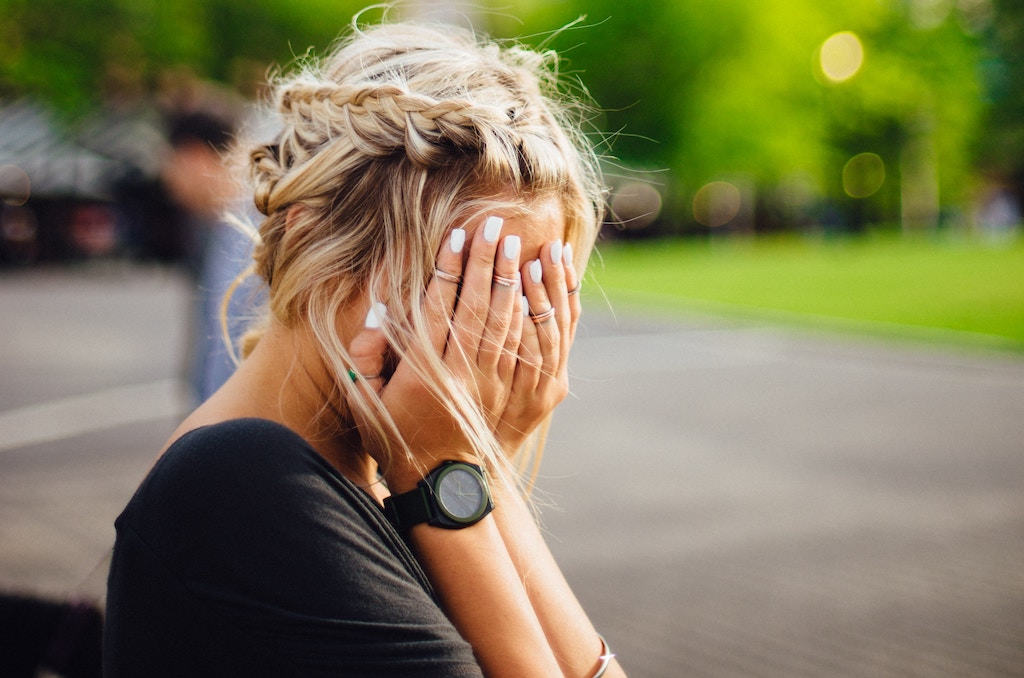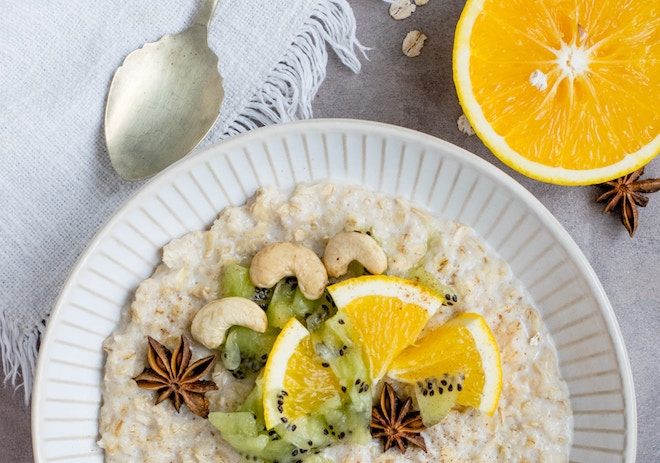Here’s How To Deal With Acne Without Spending Loads Of Money
Tips from an actual expert.

There’s nothing more soul crushing than having your face marred by acne. Those retched red spots call the shots on your self esteem, your confidence and your motivation to face the outside world.
But trying to do something about your acne feels like a rich person’s game. All the topical treatments, serums, retinols and cleansers constantly suggested on skincare forums don’t come cheap, and neither does an appointment at the local dermatologist.
Not to mention how little sense all the rules make. You could eat a completely clean diet and still get pimples. You could follow a rigorous three step skin care routine and still get pimples. You could do everything they tell us to do to and we still. Get. Pimples.
So what can we do? We spoke to Professor Kate Steinbeck, an expert in adolescent medicine at the University of Sydney, to get some real answers. It’s a lot more simple than you’d think.
Pay A Visit To Your GP
Professor Steinbeck got real about the impact that acne can have on young people’s lives. She said: “It’s a very distressing thing, and I think people don’t take it seriously enough sometimes. It’s not going to kill you, but it may really make a big difference to how you feel about yourself and your relationships.”
Professor Steinbeck urges any person who has lingering acne in their twenties to go straight to their GP. “Most people grow out of acne in their early to late teens. For girls particularly, if they’re continuing to get acne I would really suggest that they see their GP. This is to make sure that they haven’t got something like polycystic ovaries,” she says.
“For boys,” Steinbeck says, “generally speaking most of them will lose their acne in their late teens too. If they still have it in their twenties the risk is that they’ve got severe acne, and that they may have scarring.
“They would be best to stop messing around with topical treatment, see a doctor and discuss something that can actually physically cure the acne.”
While an appointment with a dermatologist can be quite exxy, a trip to your general practitioner will more than likely be covered by medicare. A doctor will also try to tackle the problem from the root cause – i.e. figure out how to tackle the hormones – rather than putting a bandaid over the wound. You could be given a prescription for an oral antibiotic.
“If there’s a hormonal imbalance in girls, often the oral contraceptive pill is very good at clearing acne,” Professor Steinbeck says.
Stay Clean
Your GP will also suggest a no-nonsense, low-cost solution to keeping your face spick, span and free of all that nasty bacteria. Acne is an inflammation and infection around the skin’s oil glands (sebaceous glands). When the glands produce too much sebum or bacteria builds up on the skin, the follicle becomes blocked and creates an infection.
So, you can see why it’s important to keep your face clean. To start, Professor Steinbeck suggests getting an antibacterial cleanser that’s ph-balanced and not too drying on your skin. Products like QV and Cetaphil are easy on the wallet and the skin.
If you feel like you need a bit of a tougher cleanser, go for one with salicylic acid and/or benzoyl peroxide. Professor Steinbeck says: “The product doesn’t have to come in a fancy package. As long as it’s got the name in it, it’s fine.”
Always follow after cleansing with a moisturiser (that is similarly fragrance and irritant free) to prevent your skin from overcompensating with oil.
Keep An Eye On Your GI

There are a lot of old wives tales floating around in reference to diet and acne and it’s difficult to sort out which of it is truth. Steinbeck says: “There really is not very much in the way of good evidence about whether diet really affects acne.” But in general, she says, it’s a good idea to avoid a high-GI diet.
“High-GI diet means your blood sugar goes up high,” she says. “And it means you have to make more insulin in order to bring that blood sugar down. Insulin, particularly in girls, can drive a hormone imbalance in their ovaries.”
High-GI foods include simple carbohydrates like white bread, pasta and anything with large amounts of sugar. Like delicious, delicious donuts. RIP.
Professor Steinbeck says, “Things like baked beans, and basmati rice, and porridge, those sorts of carbs, are low-GI. Also, a few studies have suggested that milk products might make acne worse.”
If you’re unhappy with your skin, but your diet leaves a lot to be desired by way of veggies, it may be time for an overhaul.
If you tackle the root cause of your acne, keep it clean with basic products and stay away from excess high-GI foods, you should be well on your way to clearer skin.
Oh, and drink more water! Water is always a good idea.